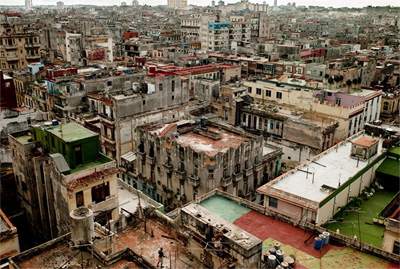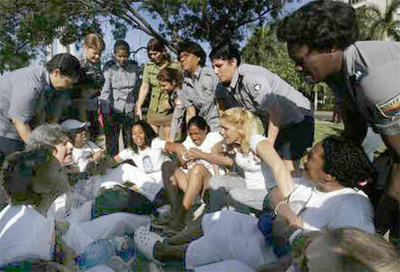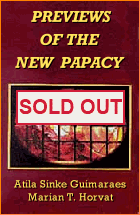International Affairs
 |
 |
 |
 |
 |
 |
 |
Unlike Obama, I’ve Met the Cuban People
Obama would have planted a big, wet one on Cuba's communist regime in 2009 if not for the need to get through three election cycles. Now he's been liberated from such mundane matters, and can give free reign to his inner Marxist. After the president announced normalization, Barack's buddy Comrade Bill Ayers Tweeted, "Viva Cuba! Cuba es en mi corazon!" ("Long live Cuba! Cuba is in my heart!")
As a doctrinaire leftist, the president believes that Fidel Castro's rise to power in 1959 marked the end of America's colonial exploitation of the island, and that severing diplomatic relations and the trade embargo are unjust.
That Cuba is marked by brutal repression, the absence of even the most basic human rights and a collectivized economy that distributes the misery quite efficiently, doesn't concern him in the least – any more than he cares about the regime's support for terrorism or its ongoing efforts to export communism to Latin America.
Truth be told, Obama probably envies Havana: No embarrassing elections. No political opposition.
His unilateral change in U.S. policy also gives him the opportunity to ignore voters who just handed him a stunning defeat and further humiliate congressional Republicans. Obama believes his Cuba surrender will be a part of his enduring legacy. He's right – a legacy of appeasing the most loathsome regimes on earth, Iran, North Korea and the Sudan, among them.
You could call Cuba an economic basket case, if it could afford the basket. Here's how the liberal Brookings Institution described it in a paper released last month:
 "The Cuban economy has been mired in stagnation for more than two decades, with declining living standards (the average worker earns the equivalent of $20 a month) an outdated productive apparatus and a balance of payments under severe strain. Frustrated by this lack of promising opportunities, many of the best educated youth are exiting the island (if they can get out)."
"The Cuban economy has been mired in stagnation for more than two decades, with declining living standards (the average worker earns the equivalent of $20 a month) an outdated productive apparatus and a balance of payments under severe strain. Frustrated by this lack of promising opportunities, many of the best educated youth are exiting the island (if they can get out)."
In its Index of Economic Freedom, the Heritage Foundation rates Cuba 176th, just ahead of North Korea. On human rights, Freedom House gives Cuba a rank of 6.5 – with 1 being the best and 7 the worst. With ample land and an ideal climate, Cuba will import $2 billion in food this year. Now Obama rides to the rescue with trade, aid, tourism and increased remittances.
In his absurd posturing, Obama declared, "The United States of America is changing its relationship with the Cuban people."
Which Cubans would those be – the ones who are captives of a geriatric oligarchy, the ones who are imprisoned for protesting tyranny, or the ones who are starved to build "prosperous and sustainable" socialism (in the words of Generalissimo Raul Castro)? Perhaps it's the workers employed by foreign firms who will get to keep 8% of their salaries, the other 92% going to the regime.
When I was in Cuba as a journalist in 1997, the plea I heard most often from ordinary Cubans was, "Tell the American people what it's like here." In a word – grim. Fidel and his baby brother have been torturing the Cuban people for more than 50 years.
I met the late Gustavo Arcos Bergnes, Castro's first ambassador to Belgium. He'd fought with Fidel in the Sierra Madre ("We thought he was a Catholic. He wore a crucifix!"). Arcos turned against the regime, when the blood started flowing ("They shot a lot of people"), and was jailed as a counterrevolutionary. When we met, he was living alone in a small apartment with his parrot, Michael Jackson. "The bird is freer than I am," he lamented.
Cuba's principal export is repression.
 The regime gets subsidized oil from Venezuela, a police state under construction. In return, it sends security agents to help control the population. A Venezuelan friend told me Cubans run the country's secret police: "It is said that they are the ones who torture protesters. The protesters say they recognize their accents, even when masked." JFK had his Peace Corps; the Castro Brothers have their Thug Corps.
The regime gets subsidized oil from Venezuela, a police state under construction. In return, it sends security agents to help control the population. A Venezuelan friend told me Cubans run the country's secret police: "It is said that they are the ones who torture protesters. The protesters say they recognize their accents, even when masked." JFK had his Peace Corps; the Castro Brothers have their Thug Corps.
The doorman at my hotel was a civil engineer. ("I can earn $20 a month as an engineer or $20.00 a day in tips.") I met an unemployed brain surgeon who'd opened a successful hospital. When the regime forced her to accommodate an increasing number of medical tourists, she protested ("I did it for the Cuban people, not hard currency") and was fired.
I went into a drugstore in a town outside of Havana and saw at most a dozen bottles and boxes on almost empty shelves. On a busy street, a man at a card table refilled disposable Bic lighters. I saw hungry people take pineapples from a field. ("Castro says it's the people's. Well, we're the people!")
I met a teacher at a sidewalk cafe the day after Fidel gave one of his famous 6-hour speeches. "So, what did El Presidente say last night?" I innocently inquired. She muttered an obscenity. Then she leaned closer and whispered in my ear, "I would like to kill him."
The night before I left Havana, I met a young man selling post cards on the street. If he was lucky, he guided tourists around, being proficient in several languages. He said he'd come to Havana from one of the provinces to study physics, then decided there wasn't much of a future in that – or anything else – in the Castro Brothers' House of Horrors.
"Help me to get out of here," he pleaded "I don't want to end up like them," pointing with his chin to middle-aged passersby. "They're like zombies." I gave him some money and the name of a contact in the American Interests Section of the Swiss Embassy.
Appropriately enough in a region renowned for voodoo, Cuba is a nation of the walking dead and those near death who're desperate to escape. These aren't the "Cuban people" Obama will have "a relationship with," but their jailers, torturers and slave masters.

This article was first published in
GrasstopsUSA on December 22, 2014
As a doctrinaire leftist, the president believes that Fidel Castro's rise to power in 1959 marked the end of America's colonial exploitation of the island, and that severing diplomatic relations and the trade embargo are unjust.
That Cuba is marked by brutal repression, the absence of even the most basic human rights and a collectivized economy that distributes the misery quite efficiently, doesn't concern him in the least – any more than he cares about the regime's support for terrorism or its ongoing efforts to export communism to Latin America.
Truth be told, Obama probably envies Havana: No embarrassing elections. No political opposition.
His unilateral change in U.S. policy also gives him the opportunity to ignore voters who just handed him a stunning defeat and further humiliate congressional Republicans. Obama believes his Cuba surrender will be a part of his enduring legacy. He's right – a legacy of appeasing the most loathsome regimes on earth, Iran, North Korea and the Sudan, among them.
You could call Cuba an economic basket case, if it could afford the basket. Here's how the liberal Brookings Institution described it in a paper released last month:

The once beautiful Havana is now stricken
with poverty and squalor
In its Index of Economic Freedom, the Heritage Foundation rates Cuba 176th, just ahead of North Korea. On human rights, Freedom House gives Cuba a rank of 6.5 – with 1 being the best and 7 the worst. With ample land and an ideal climate, Cuba will import $2 billion in food this year. Now Obama rides to the rescue with trade, aid, tourism and increased remittances.
In his absurd posturing, Obama declared, "The United States of America is changing its relationship with the Cuban people."
Which Cubans would those be – the ones who are captives of a geriatric oligarchy, the ones who are imprisoned for protesting tyranny, or the ones who are starved to build "prosperous and sustainable" socialism (in the words of Generalissimo Raul Castro)? Perhaps it's the workers employed by foreign firms who will get to keep 8% of their salaries, the other 92% going to the regime.
When I was in Cuba as a journalist in 1997, the plea I heard most often from ordinary Cubans was, "Tell the American people what it's like here." In a word – grim. Fidel and his baby brother have been torturing the Cuban people for more than 50 years.
I met the late Gustavo Arcos Bergnes, Castro's first ambassador to Belgium. He'd fought with Fidel in the Sierra Madre ("We thought he was a Catholic. He wore a crucifix!"). Arcos turned against the regime, when the blood started flowing ("They shot a lot of people"), and was jailed as a counterrevolutionary. When we met, he was living alone in a small apartment with his parrot, Michael Jackson. "The bird is freer than I am," he lamented.
Cuba's principal export is repression.

Las Damas Blancas (The Ladies in White) are arrested for protesting the imprisonment of loved ones
The doorman at my hotel was a civil engineer. ("I can earn $20 a month as an engineer or $20.00 a day in tips.") I met an unemployed brain surgeon who'd opened a successful hospital. When the regime forced her to accommodate an increasing number of medical tourists, she protested ("I did it for the Cuban people, not hard currency") and was fired.
I went into a drugstore in a town outside of Havana and saw at most a dozen bottles and boxes on almost empty shelves. On a busy street, a man at a card table refilled disposable Bic lighters. I saw hungry people take pineapples from a field. ("Castro says it's the people's. Well, we're the people!")
I met a teacher at a sidewalk cafe the day after Fidel gave one of his famous 6-hour speeches. "So, what did El Presidente say last night?" I innocently inquired. She muttered an obscenity. Then she leaned closer and whispered in my ear, "I would like to kill him."
The night before I left Havana, I met a young man selling post cards on the street. If he was lucky, he guided tourists around, being proficient in several languages. He said he'd come to Havana from one of the provinces to study physics, then decided there wasn't much of a future in that – or anything else – in the Castro Brothers' House of Horrors.
"Help me to get out of here," he pleaded "I don't want to end up like them," pointing with his chin to middle-aged passersby. "They're like zombies." I gave him some money and the name of a contact in the American Interests Section of the Swiss Embassy.
Appropriately enough in a region renowned for voodoo, Cuba is a nation of the walking dead and those near death who're desperate to escape. These aren't the "Cuban people" Obama will have "a relationship with," but their jailers, torturers and slave masters.

Posted December 31, 2014
______________________
______________________











